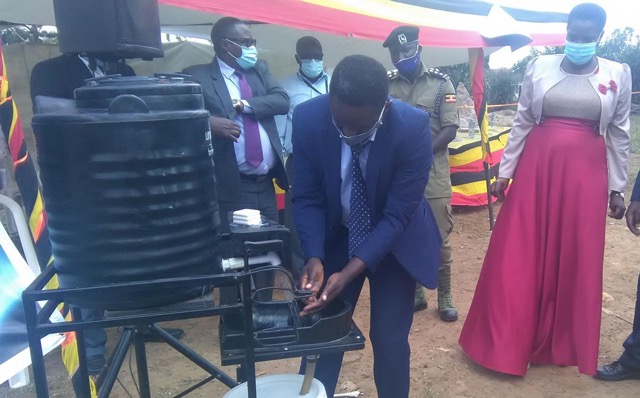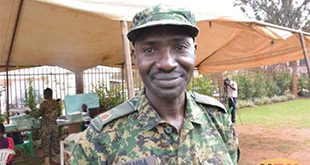
Wakiso , Uganda | THE INDEPENDENT | Wakiso leaders are bitter, that no senior leader at the ministry of health could make time to attend the launch of the National Sanitation Week in the very district where practically they are based, during this era of Covid-19 where sanitation is the key defence against the pandemic.
The theme of the national sanitation week which was launched at Namayumba town council headquarters in Wakiso district yesterday and will last until Friday 22nd “Good sanitation and hygiene – a sure way to fight COVID -19”.
To the disappointed leaders of Wakiso, this attitude further explains why the ministry has not endeavored to give a sanitation fund to the district, just relying on sanitation figures showing high latrine coverage in Wakiso which are not a clear representation of the situation on the ground.
However, the ministry was actually represented by the commissioner for Environment Health Dr. Moses Kabandi, though the Wakiso leaders had expected at least one of the ministers, given the role of sanitation during the covid-19 pandemic and the proximity of the district to the ministry headquarters.
The district health inspector David Ssekaboga says that although the national figures indicate an 89.2 percent latrine coverage for Wakiso, those figures are only capturing households and neglecting the population which is the highest in the country.
The ministry, according to Ssekaboga considers the urban parts of Wakiso district which have got modern settlement where households are not only good but also less congested yet the rural parts of the district with a bigger population have less sanitation facilities like latrines and drying racks among other necessities.
He also wants government to help the urban local governments in Wakiso to develop modern ways of handling solid waste which he says is increasingly becoming a problem. Ssekaboga says that although these are considered to be urban local governments, but they don’t have the capacity to manage solid waste.
The district chairperson Matia Lwanga Bwanika led the criticism of top the ministry of health for snubbing the launching of the sanitation week despite it being a national function saying that it is one of the indicators of the ministry undermining the importance of Wakiso as a district.
Bwanika is pleading for a special treatment for Wakiso from the central government reasoning that in addition to having the highest population of 3m people, it has extremes in almost all walks of life.
He called for a review of the Wakiso district budget to provide more necessities for its staff which will in turn give them an opportunity to provide better services to the people at the grass root.
Dr. Moses Kabandi, the environment commissioner who represented the ministry of health, said that the sanitation week interaction allows the ministry to get a feedback from local governments on how their policies especially those related to sanitation are working in communities.
********
URN
 The Independent Uganda: You get the Truth we Pay the Price
The Independent Uganda: You get the Truth we Pay the Price


